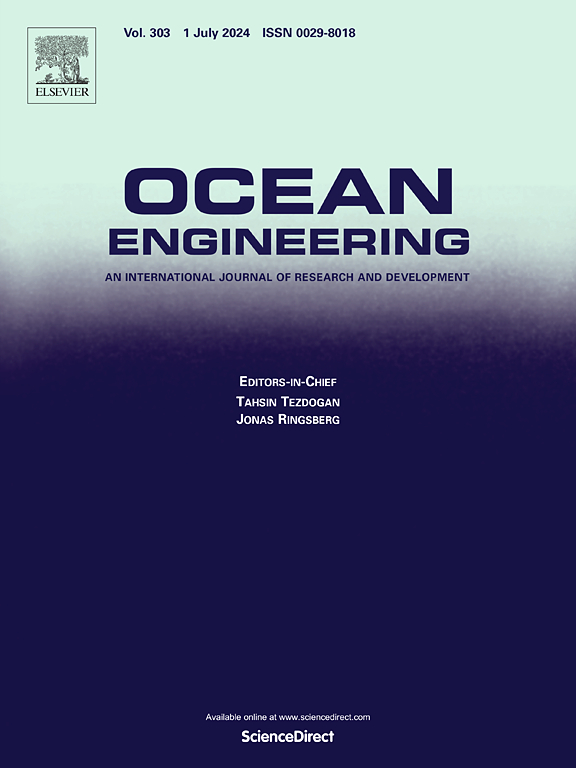Dynamic resilience modeling of maritime traffic systems: A hybrid HMM-DBN approach for analyzing LNG-Fueled vessel interactions
IF 4.6
2区 工程技术
Q1 ENGINEERING, CIVIL
引用次数: 0
Abstract
The growing adoption of liquefied natural gas-fueled vessels (LNGFVs) in maritime traffic systems has heightened the need for advanced resilience modeling to mitigate operational risks and improve safety. This research introduces a novel hybrid methodology combining Hidden Markov Models (HMM) and Dynamic Bayesian Networks (DBN) to dynamically assess the resilience of LNGFV operations. Initially, a safety-control feedback structure is developed using Causal Analysis System Theory (CAST), revealing critical factors and their interrelationships that influence navigation safety and resilience. Subsequently, an HMM-based quantification model is designed to address latent-node measurement challenges within the DBN framework, enabling precise inference of complex interactions in maritime traffic systems. Real-world data from an LNGFV collision case in Northeast Australia, including ship-sensor and environmental data, are utilized to reconstruct the accident process and analyze the functional interactions between LNG and vessel operations. Simulation results demonstrate that LNGFV traffic resilience evolves through dynamic interactions among the external environment, the vessel, and LNG, exhibiting a fluctuating temporal pattern. Additionally, the proposed Triple Protection Mechanism shows significant potential in enhancing system resilience. This study provides a comprehensive modeling framework and a new perspective for improving the safety and resilience of maritime transportation, particularly for LNGFV operations. The hybrid HMM-DBN approach offers a robust tool for researchers and practitioners to address the challenges of complex maritime systems.
海上交通系统的动态弹性建模:用于分析液化天然气燃料船舶相互作用的混合 HMM-DBN 方法
海上交通系统越来越多地采用液化天然气燃料船(LNGFV),这就更加需要先进的弹性建模来降低运营风险和提高安全性。本研究介绍了一种结合隐马尔可夫模型(HMM)和动态贝叶斯网络(DBN)的新型混合方法,用于动态评估 LNGFV 运营的复原力。首先,利用因果分析系统理论(CAST)开发了安全控制反馈结构,揭示了影响航行安全和复原力的关键因素及其相互关系。随后,设计了一个基于 HMM 的量化模型,以解决 DBN 框架中潜在节点测量的难题,从而能够精确推断海上交通系统中复杂的相互作用。利用来自澳大利亚东北部 LNGFV 碰撞案例的真实数据(包括船舶传感器和环境数据)重建事故过程,并分析 LNG 与船舶操作之间的功能交互。仿真结果表明,LNGFV 交通复原力是通过外部环境、船舶和 LNG 之间的动态互动演变而来的,表现出一种波动的时间模式。此外,提出的三重保护机制在增强系统复原力方面显示出巨大潜力。本研究提供了一个全面的建模框架和一个新的视角,用于提高海上运输,特别是 LNGFV 运营的安全性和复原力。HMM-DBN 混合方法为研究人员和从业人员应对复杂海事系统的挑战提供了强有力的工具。
本文章由计算机程序翻译,如有差异,请以英文原文为准。
求助全文
约1分钟内获得全文
求助全文
来源期刊

Ocean Engineering
工程技术-工程:大洋
CiteScore
7.30
自引率
34.00%
发文量
2379
审稿时长
8.1 months
期刊介绍:
Ocean Engineering provides a medium for the publication of original research and development work in the field of ocean engineering. Ocean Engineering seeks papers in the following topics.
 求助内容:
求助内容: 应助结果提醒方式:
应助结果提醒方式:


